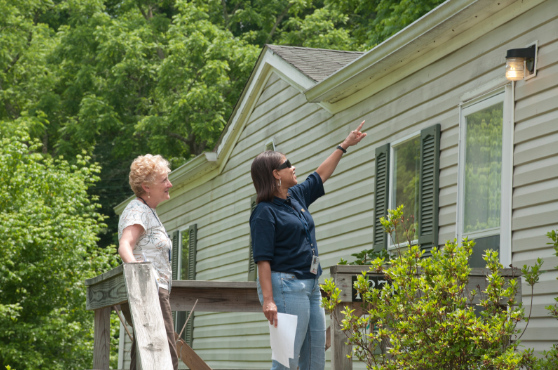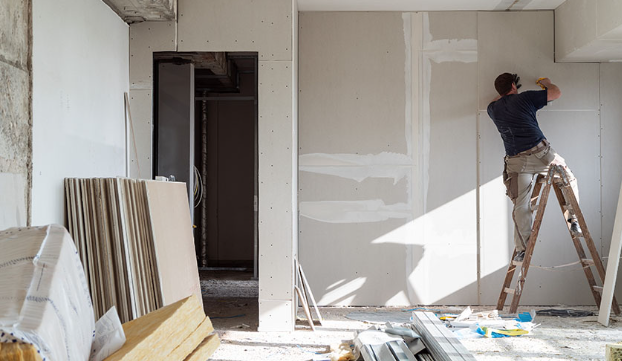A Cautionary Guide For First-Time Homebuyers

Just because you’re not being totally naïve about buying your first home, it doesn’t mean that you’re going to pull it off perfectly!
When most people are finally ready to stop renting and buy their first home, they approach the whole issue very carefully.
They educate themselves on the real estate market, and read as much as they can on every little facet of the home buying process.
However, even after all this work, it’s fairly common for first-time buyers to make various newbie’s mistakes.
Many people might be happy with their purchase in the long run, but I’m sure it wouldn’t be hard for you to find a lot who wish they did things differently.
In this post, I’ll go over some of the most valuable lessons I can give to first-time buyers. It’s better to read it here than to learn the hard way!
Start Saving ASAP
The first piece of advice I can offer is to start saving as soon as you know you’re going to buy a house.

The sooner you have the capital to make a down payment, the easier it will be to get through the various complications of actually buying the house.
Unfortunately, a lot of people don’t worry about saving up until it’s too late, and end up having to get a mortgage worth a massive proportion of the home’s actual value.
This can be a hard truth to swallow, so make sure you’re planning for the down payment well in advance. Obviously, you’ll want to avoid having to pay private mortgage insurance.
In order to do this, you’ll generally have to save up around 20% of your target home’s value as a down payment.
Obviously, this isn’t exactly a trivial amount of money, and it may be hard for you to come up with it. However, you’ll find it much easier if you start to save for the down payment as soon as you know you’re planning to buy.
I know that meeting this kind of figure could mean that you’ll have to put off the whole idea of a house for some time.
However, it’s better to live in a home a little less to your tastes that you can afford, than to ruin yourself by sticking to the one you have your heart set on.
This brings me onto my next point…
Don’t Be in a Rush
Make sure you’re not rushing any phase of your home buying process.
I understand that this is often easier said than done. Unless you can see the future, there will be certain things in life which take you by surprise, and turn your plans on their head.
One of the most common factors here is an unexpected pregnancy. Don’t get me wrong, having a child with someone you love is a wonderful thing.
However, it’s much more wonderful when it comes at a convenient time! If you’ve got a baby on the way and you need more living space in a hurry, then you may feel inclined to rush the process.
Try to ignore this inclination! There are many different factors to buying a home, and you’ll be helping yourself a lot by keeping your search as broad as possible.
If you settle too early in the process, then you may end up regretting it.
Get Ready to Stretch Your Dollars
Seen as you’re now saving for that hefty down payment, your personal finances may be starting to feel a little stretched. I hate to break it to you, but you’re going to have to stretch them even more!
When you become a homeowner, there’ll be a number of new expenses that you’ve never had to budget for before. Home repairs, higher utilities and lawn maintenance are all things you may have to start to factor in.
To make sure you’re not caught with your pants down when you first move in, it’s important to start building up an emergency fund.
Ideally, you should be adding to this months, or even years before you commit to buying a home. If and when you need an emergency cash cushion, it will be right there waiting for you.
If possible, find out about the expenses you’re going to have to meet once you’re moved in, and try to adjust your savings so that you’ll be both comfortable and protected.
Having a financial plan is important at any stage of your adult life, but even more so when you’re a homeowner.
When you’re disciplined enough to keep focused on your goals and quotas, you’ll have much greater control over your money, and be able to bounce back from any unexpected hiccups much easier.
Do a Home Inspection

When it actually comes to house-hunting, make sure you’re paying enough attention in the home inspection phase.
A lot of first-time buyers have the false assumption that once you have a professional home inspector, you don’t have to put in much or any work yourself.
This is wrong. Sure, it’s good to follow the inspector through every room, ask them any questions you have, and take notes on what they say.
However, if you fail to check everything out for yourself, you could end up walking into various expensive problems.
For example, background features of a home like the water heater can be extremely old and faulty. If you overlook this, you’ll have to fork out a small fortune to replace it at a later date.
However, if you pick up on it during the home inspection, you may be able to ask the seller for some credit to have it replaced.
While you should certainly hire a professional home inspector, they should always be treated as a support for your inspection, rather than the sole operator.
Get a Second Opinion
Next, make sure you’re getting a second opinion on every house you consider. As I’m sure you can imagine, it’s dangerously easy to fall in love with a house once you’ve had a quick look around.
Just like leaving it all to the home inspector, this can lead to you overlooking some serious flaws. This, in turn, can bring all kinds of big expenses down on your head.
It’s great if you find a house that’s both beautiful and financially sound. However, w hen you’re at viewings, it’s important to leave the love-blinders at home.
The most foolproof way of doing this is bringing along a family member, or a friend who you trust to give honest opinions.
They’re not buying the home themselves, so they’ll be far more likely to pick up on things that you might overlook. You might disagree on certain things, but an extra pair of eyes is never a bad thing during home viewings.
Quote Several Homeowners Insurance Plans
Finally, make sure you’re shopping around enough for homeowner’s insurance. There are countless homeowner’s policies out there, and it will pay off in the long run to take your time looking.
Furthermore, don’t be afraid to fiddle around with your other policies, or switch to new ones so you can bundle them.
These days, pretty much all major insurers will give you a considerable discount if you purchase your auto and homeowner policies in one package.
In the past, when you were looking for insurance, you probably had one thing at the front of your mind: the price.
While you should certainly be looking for a good deal on your homeowner’s policy, don’t just go for the cheapest one!
Your home is probably going to be the largest investment you’ll ever make, so you need to ensure you’re choosing a comprehensive and high-quality policy.
It’s no good saving on your insurance if it comes up short when you need it most.
Final Thoughts…
When it comes down to it their are a lot of things to look for when buying a home. You don’t want to go into a decision like this blindly and just pick a house because it looks nice.
You really need to dig in and learn everything you can before you buy because once you do it’s your house and if it has a bunch of issues you’ve overlooked it could cost you a lot down the road.
So are you a first time home buyer? What are you doing to avoid costly mistakes and find the house of your dreams? I would love to hear your thoughts, comments, and stories below.
Cheers!






